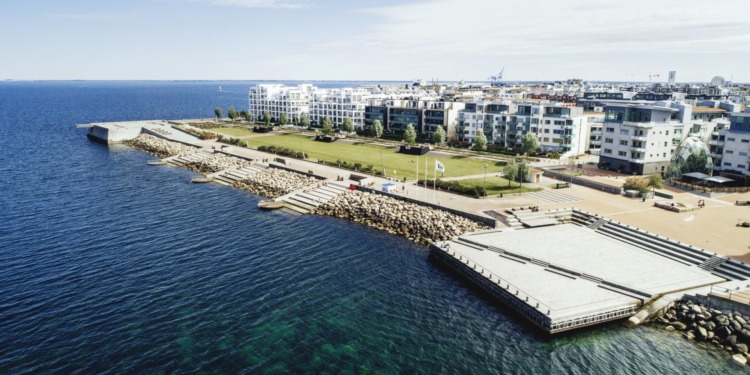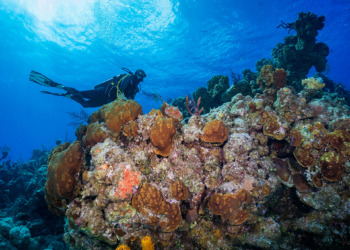The city of Malmö, a once successful industrial city, has reinvented itself as a dynamic knowledge centre built on cultural diversity, youth and sustainable development. Malmö is working actively on sustainability initiatives and is the first city in Sweden that has publicly announced its commitment to implement the United Nations Sustainable Development Goals (SDGs).
This May, the Swedish city has partnered with ICLEI to co-host the Malmö Summit as part of the ICLEI World Congress 2021 – 2022. An international three-day event, the Malmö Summit brought together local and regional governments, urban practitioners, researchers and stakeholders to “exchange with and inspire one another on the best practices in local sustainable development.”
As part of this collaboration, the City of Malmö has produced six short films about its initiatives and solutions for sustainable urban development (created specifically for the ICLEI World Congress).
Presented by Trevor Graham, the director of Urbanisland, an independent consultancy focused on innovation for sustainable communities in cities, islands and rural communities, the films touch upon key features cities can and should improve to promote urban sustainability.
Films about sustainable Malmö
1. Circular City
The first film created by the City of Malmö, “Circular City,” discusses circular solutions and large and small-scale initiatives applied to the city. Two examples provided in this film involve the use of recycled and up-cycled materials in the housing sector, which is essential for carbon reduction; and the use of organic food in school meals, which helps to decrease the total amount of food waste to a great extent.
The concept of circular economy, a model of production and consumption that “involves sharing, leasing, reusing, repairing, refurbishing and recycling existing materials and products as long as possible,” has been gaining a lot of traction in the last few years for its potential to tackle global challenges like the climate crisis, biodiversity loss, and waste.
The “Circular City” film also sees Anna Vilén, marketing communicator at Sysav with a strong focus on textiles, discuss the world’s first industrial-scale automated textile sorting system named Swedish Innovation Platform for Textile Sorting (Siptex), which operates in Malmö.
2. Sustainable and Resilient City
The second film discusses resilience in Malmö and how the city relies on high-quality service delivery as a basis from which to tackle challenges, such as crime, climate adaptation, or creating more vibrant communities.
An example of climate adaptation in Malmö would be the city’s focus on the prevention of floods, which may worsen over the years to come as a result of the climate crisis. An example would be the stormwater system in Augustenborg – a Sustainable Urban Drainage System (SUDS) – consisting of open canals, swales, ponds and green roofs as well as adapted leveling of green areas to ensure controlled flooding. This has been recently followed up with the “sunken parks” initiative in various parts of the city to gather up stormwater.
3. Low Emission Transport
The third film aims to highlight the need to lower emissions in the city’s public transportation. Malmö has several initiatives working on that, such as cycling, which is perceived as an increasingly common and attractive form of transport: 25% of journeys in Malmö today are made by bike.
In addition, the city focuses on initiatives for walkability, electric public transport and the development of new mobility hubs. An example is the wooden car park the city is currently working on – the first of its kind in Sweden, and the largest one in Europe.
“The parking will be very, very low in climate impact,” said Maja Johansson, climate strategist at Parking Malmö.
The “Low emission transport” film underlines the importance of including public transport when planning for a more sustainable (urban) future and offers a glimpse into Sweden’s plan to create train connections with several parts of Europe in order to offer cleaner travel opportunities.
4. Equitable and Inclusive City
Malmö, like many cities, struggles with significant socio-economic challenges, health inequity and social exclusion. The film below, “Equitable and inclusive city,” explores local initiatives tackling these issues, which in turn help to create new sustainable businesses.
One such example the film looks at is Botildenborg, a sustainable business that through food and farming contributes to social, ecological, and economical sustainability.
As the founder of the Botildenborg Foundation Lena Friblic put it:
“We started a “green revolution”: making green cities, and developing food entrepreneurs within cities. We develop and educate urban farmers who are living in the city, do business in the city, and farm in the city. In doing so, we provide practical solutions for a better world, using food and farming.”
5. Carbon Neutral Energy and Building
Malmö is aiming to be carbon neutral by 2030. The short film below, “Carbon neutral energy and building,” illustrates how the city’s energy system is being developed to be 100% renewable and how the construction and property sectors are mobilising to meet the challenge.
Wind power is one of the key elements for the city to reach 100% renewable energy. A great example of the role of wind power in creating renewable energy in Malmö would be the “Bo01” area, which is a neighborhood in southern Malmö known for its sustainable development and design. The Bo01 district is supplied with 100% renewable energy and serves as an example for sustainable urban renewal far beyond Sweden’s borders. A great deal of attention has been given to highly diverse green spaces and biodiversity. Large numbers of trees, creeper plants, ponds and green roofs mean that every garden is home to at least 50 varieties of plants and offers food for birds. The public spaces, most of which are closed to cars, provide a range of opportunities for cycling or walking along its pleasant routes. The area is characterised by its use of recycled water, raw materials and waste, and its use of natural resources such as sun and wind energy.
In addition, the film touches upon the LFM30 initiative, a local roadmap for climate-neutral building and construction in Malmö by 2030 that aims to embrace smart energy solutions and environmentally friendly materials. Thanks to the initiative, construction actors can minimise the climate impact of buildings and facilities through design and material choice, with function, circularity and low climate footprint being prioritised.
6. Nature-Based Neighbourhood
The Augustenborg neighbourhood, Malmö’s first eco-city development, was a pioneer of sustainable urban regeneration where local flooding problems were the driving force for nature-based solutions. Green roofs, open stormwater systems, ponds and wetlands has inspired its development.
The Augustenborg neighbourhood emphasises the involvement of the local community: community initiatives, such as the work on community gardens, are a great part of the eco-city development.
“Nature-based solutions are win-win options for a more livable and sustainable city,” said director of Urbanisland Trevor Graham.
Overall, these short films produced by the City of Malmö are great examples of how to effectively change an urban environment, confirming that sustainable urban development is the only way forward if cities truly hope to mitigate climate change.
Editor’s Note: The opinions expressed here by Impakter.com columnists are their own, not those of Impakter.com — In the Featured Photo: The sustainable housing development Bo01, in Malmö, Sweden. Featured Photo Credit: ICLEI.










